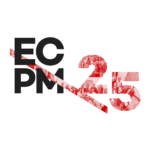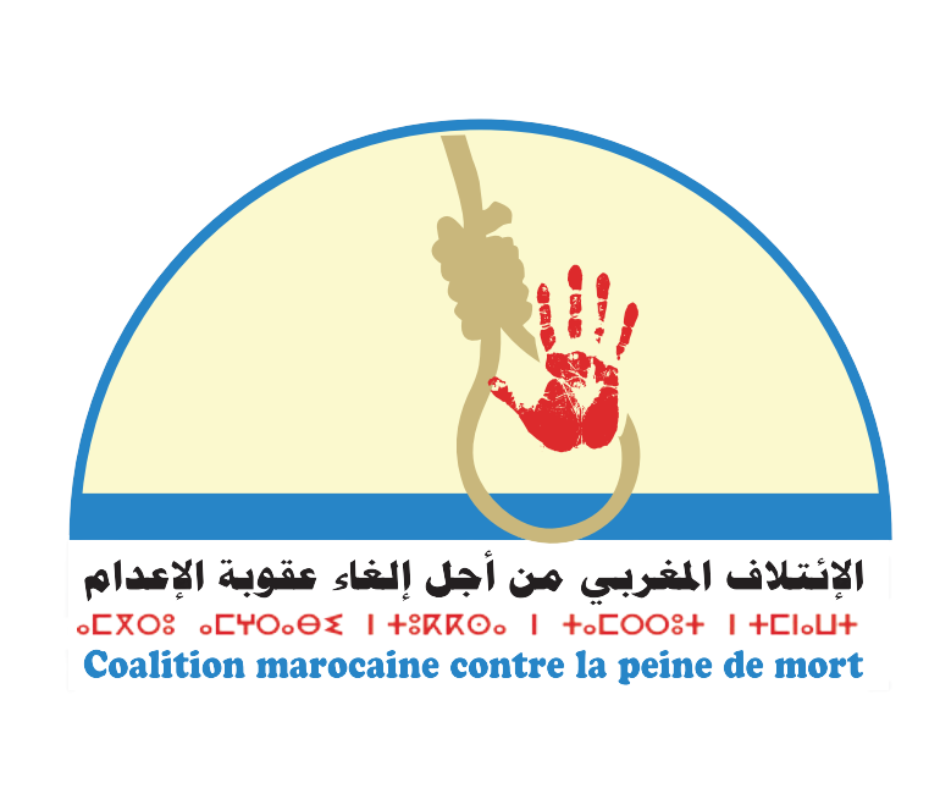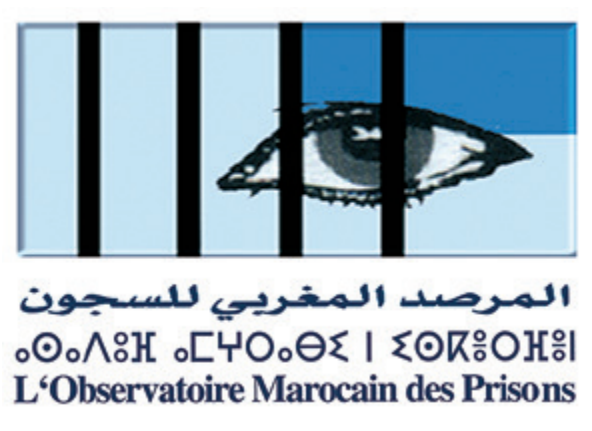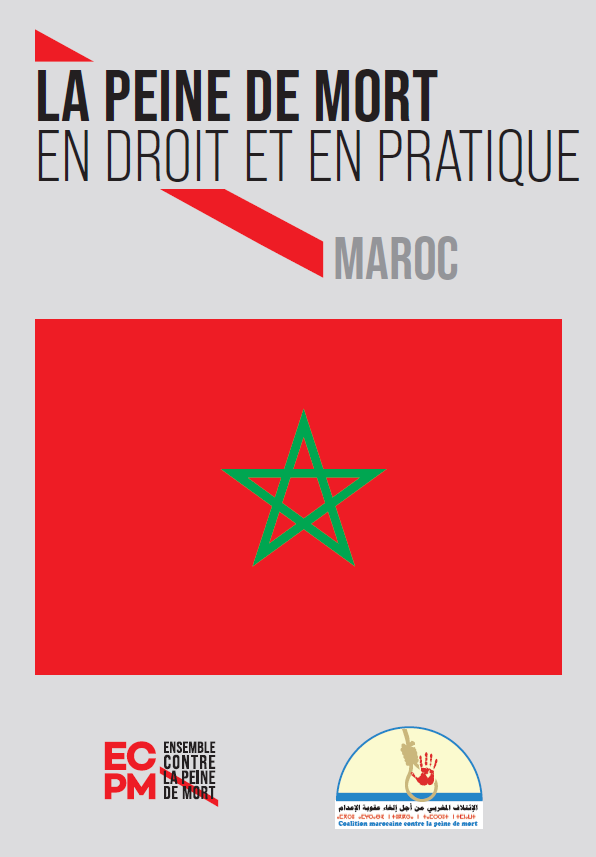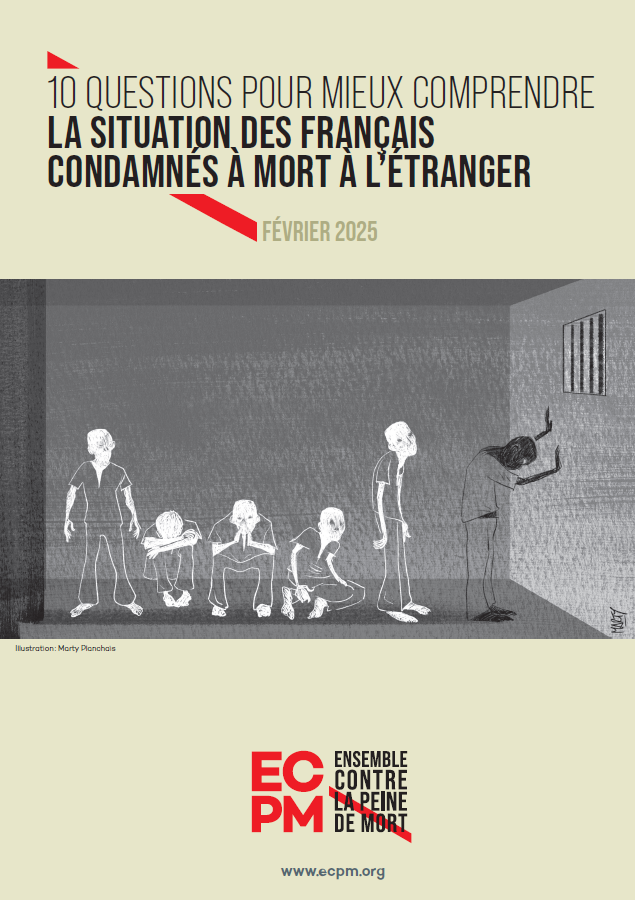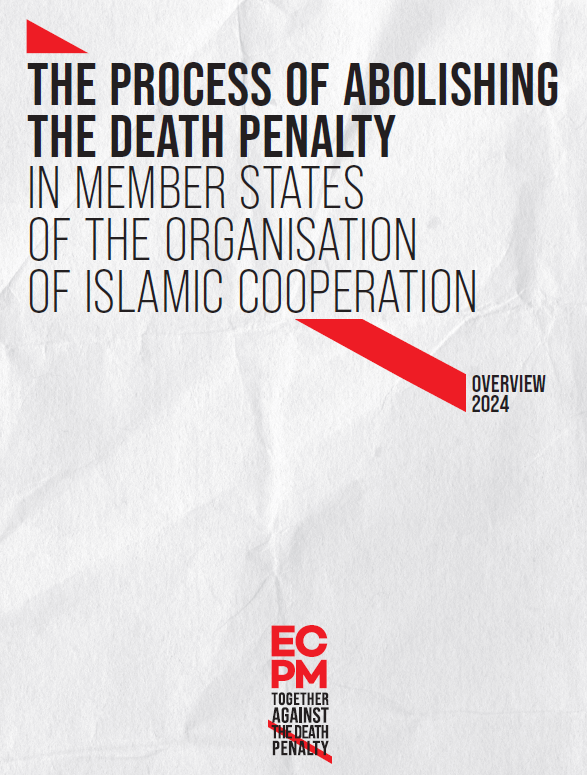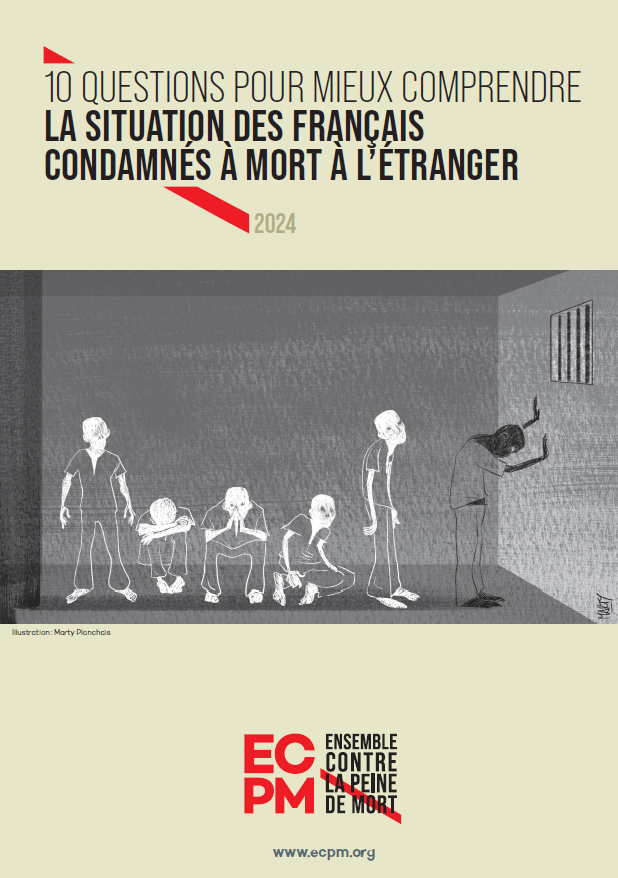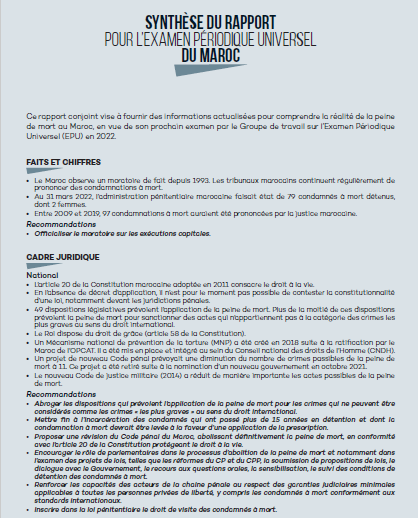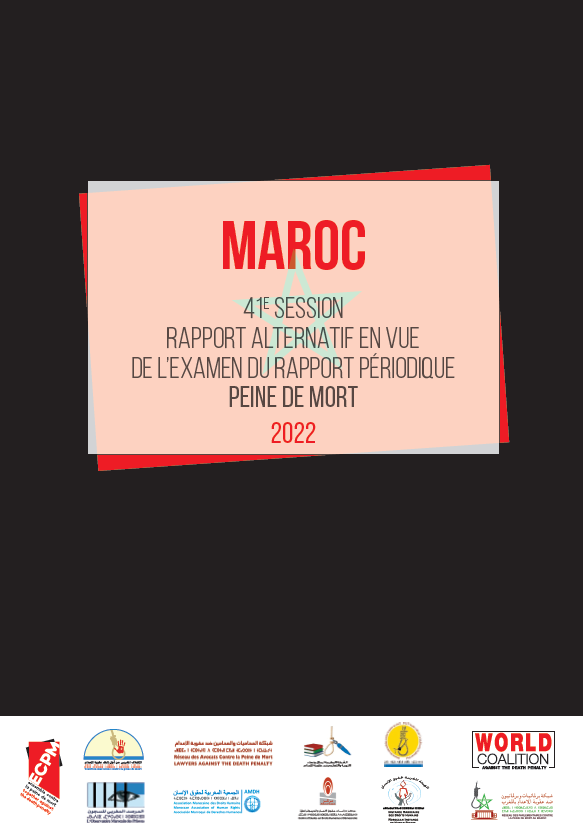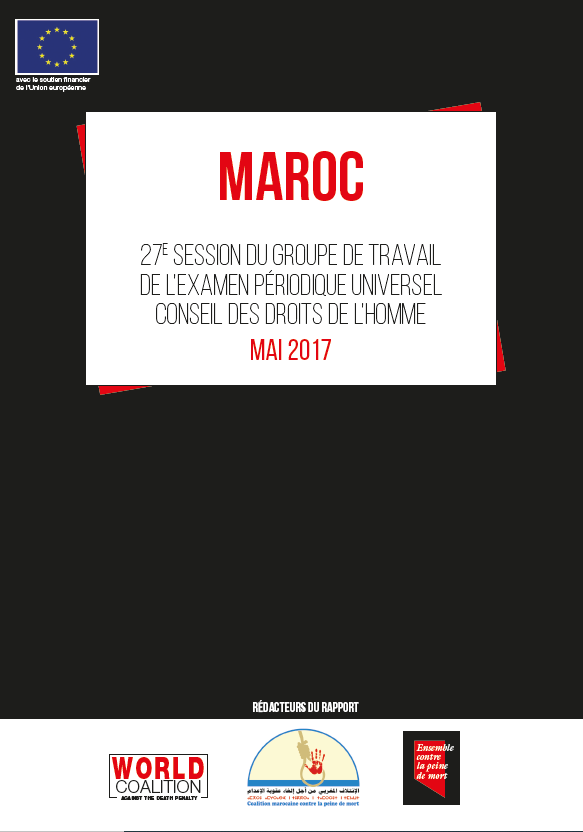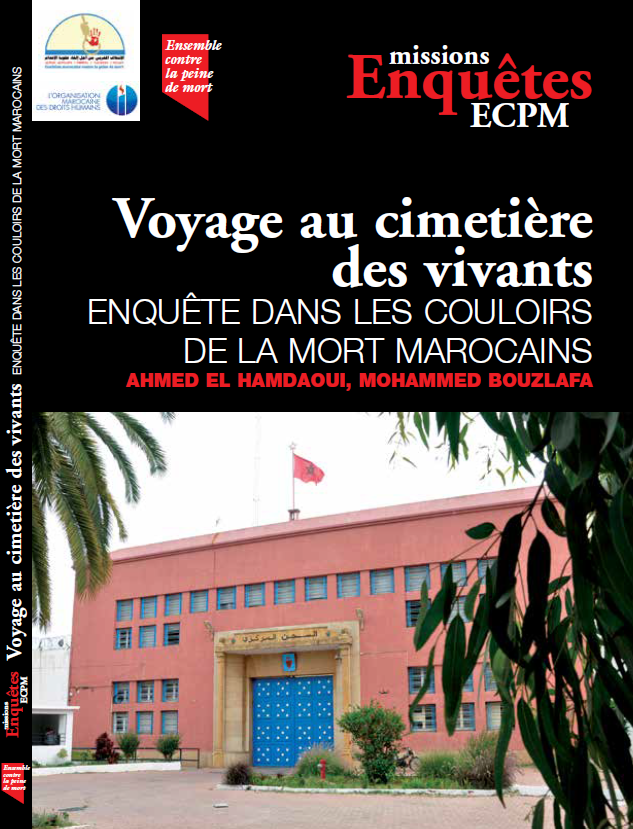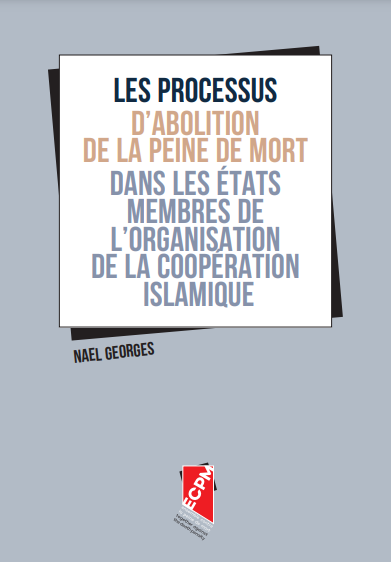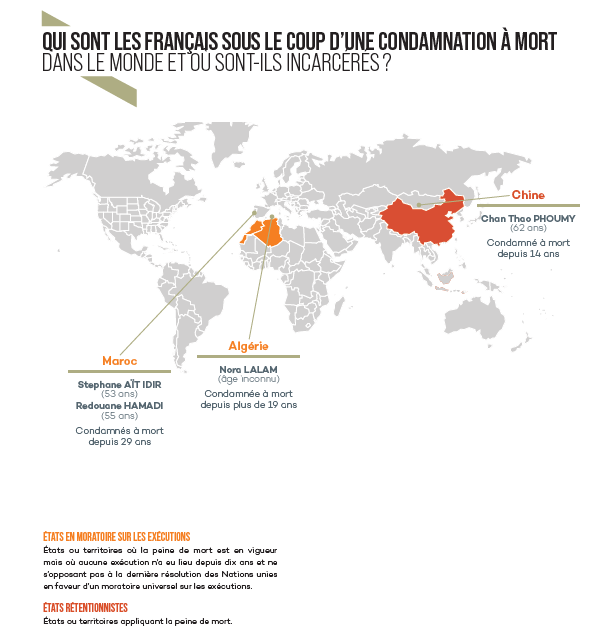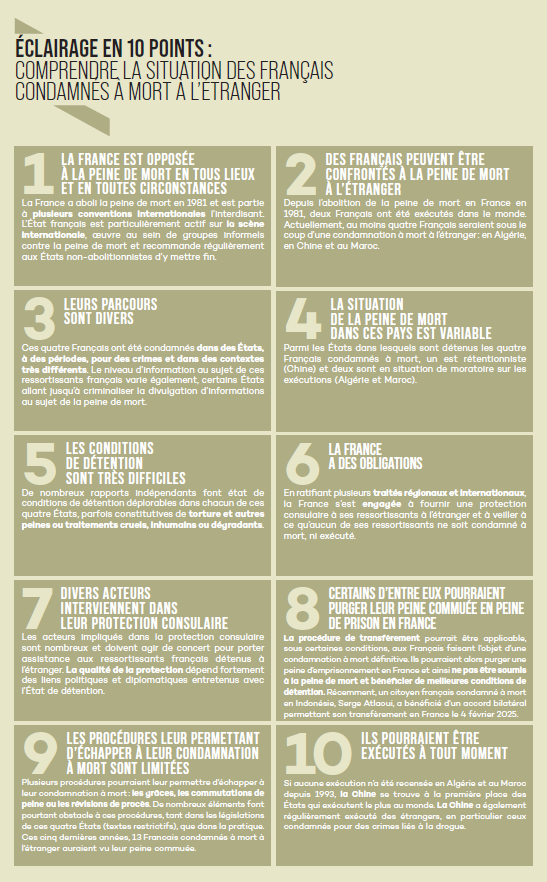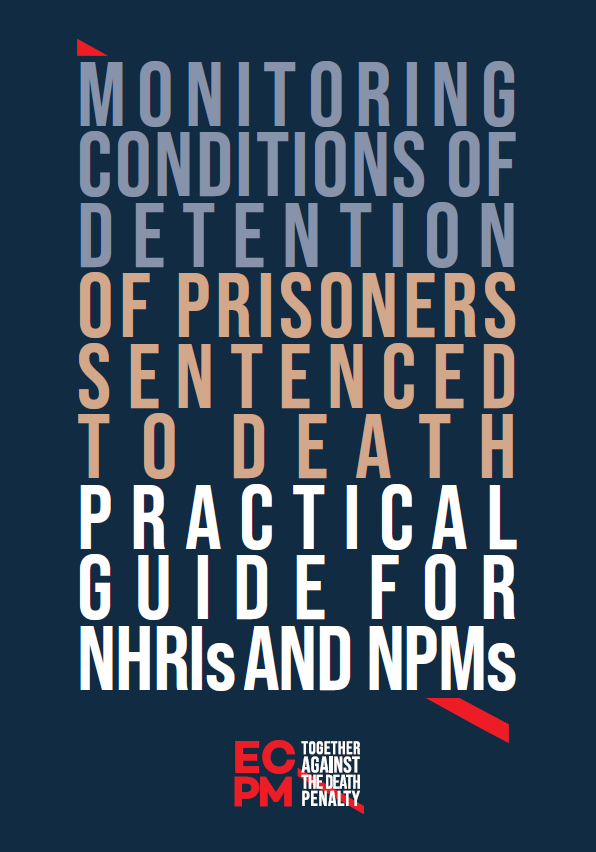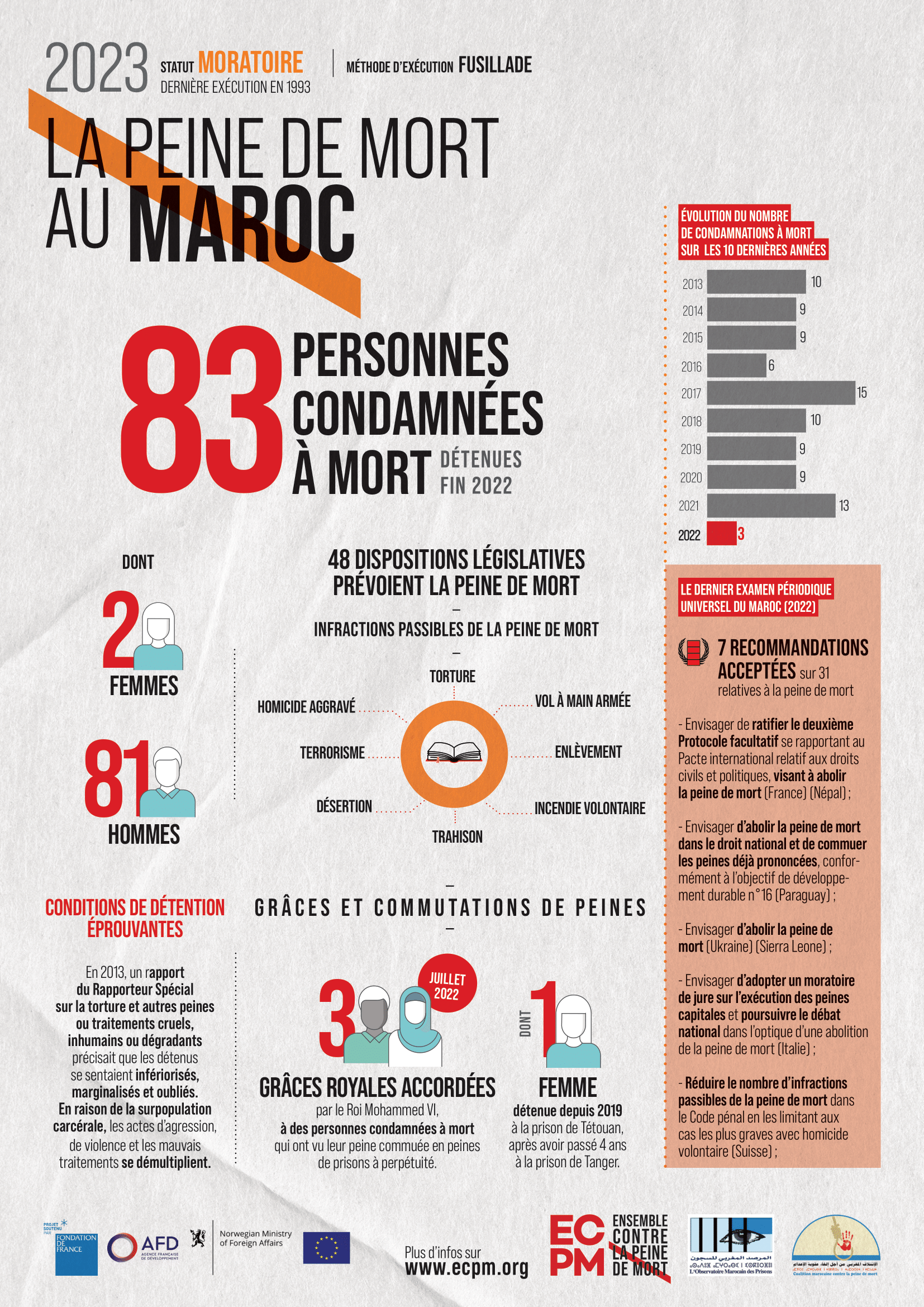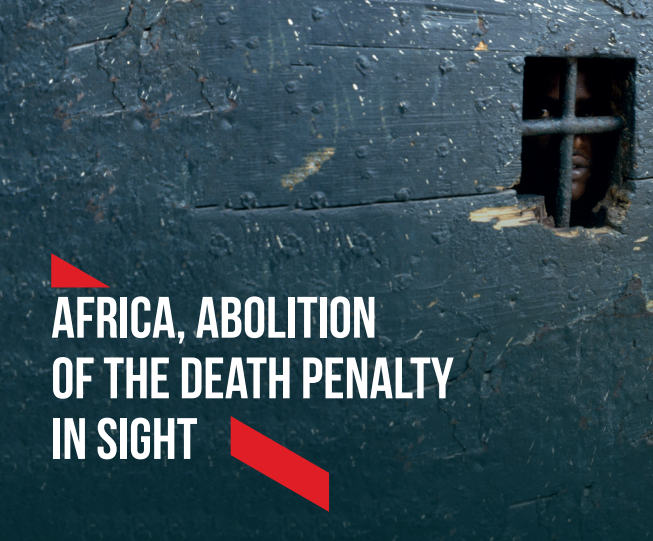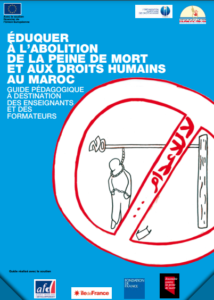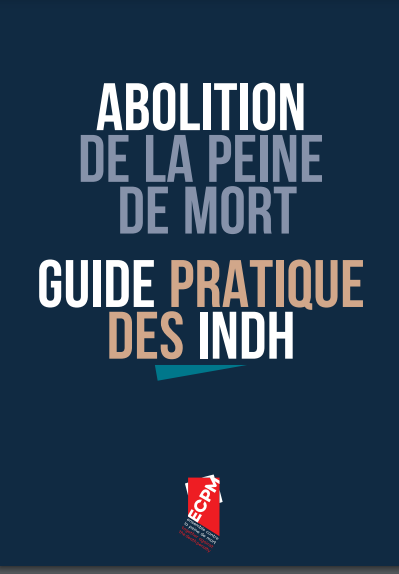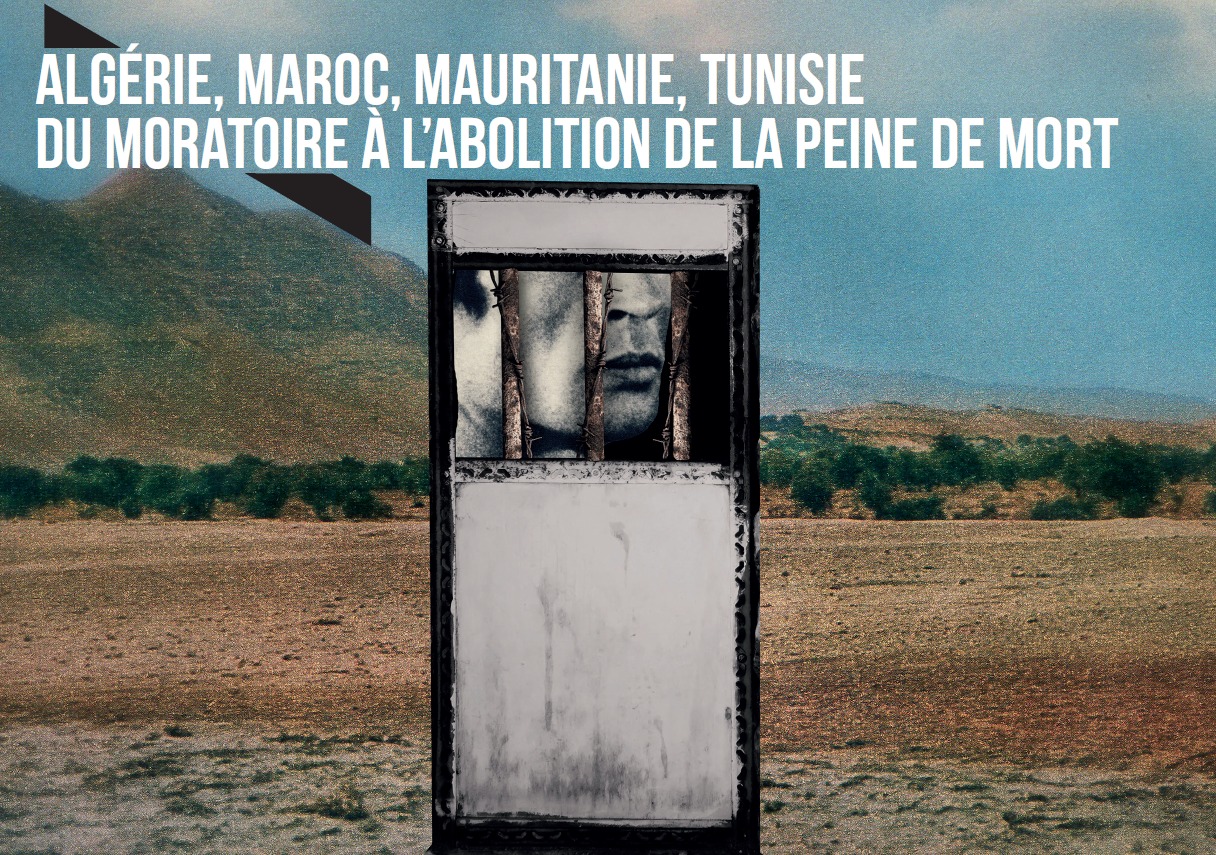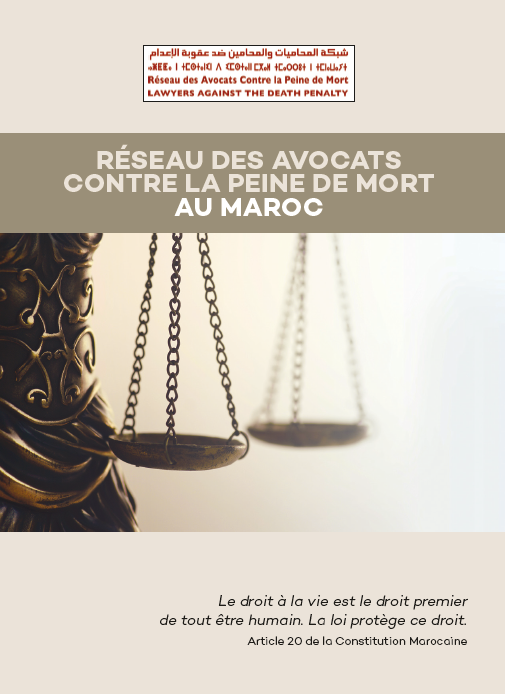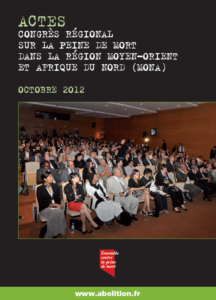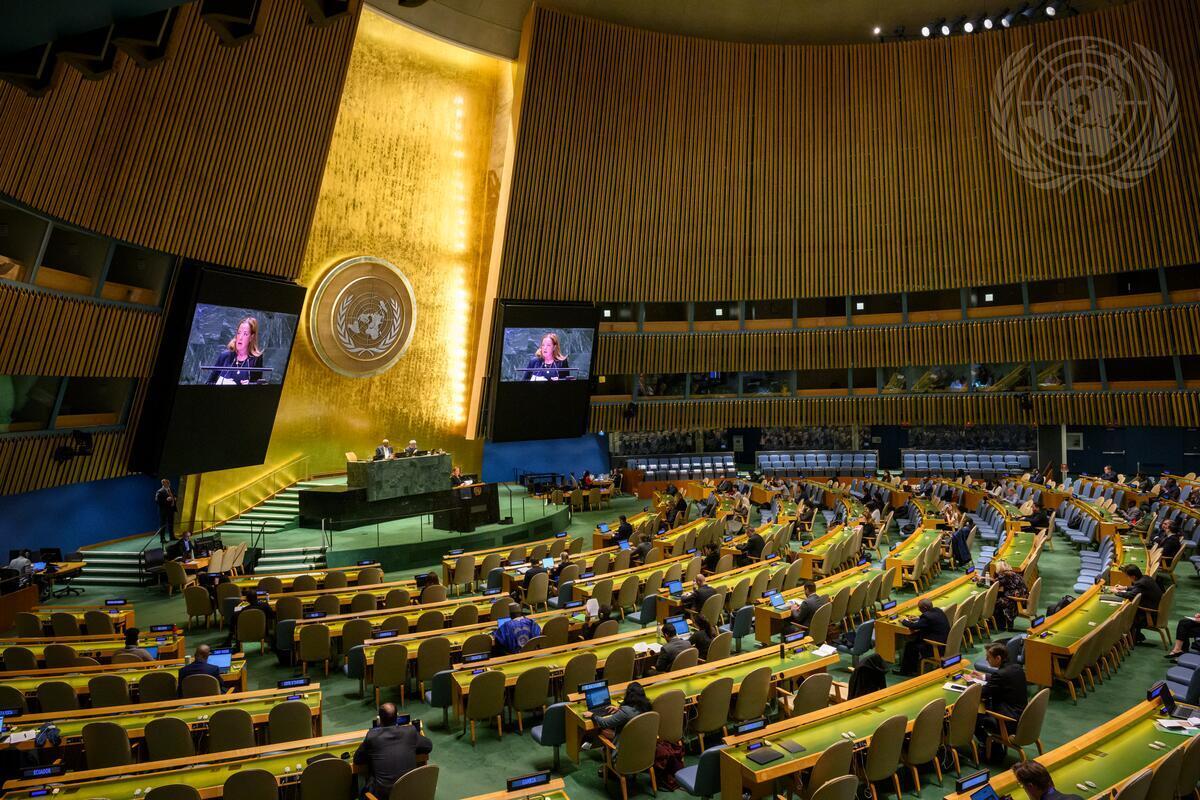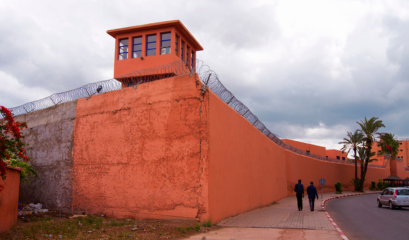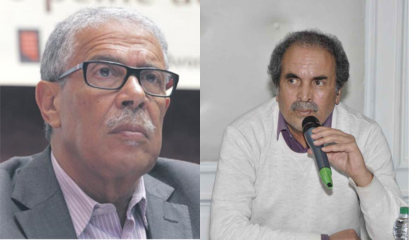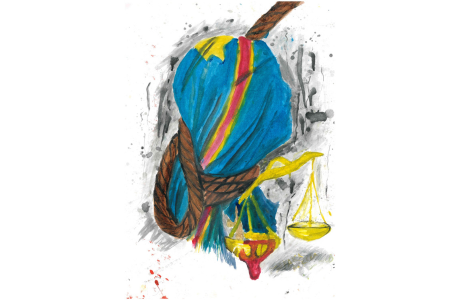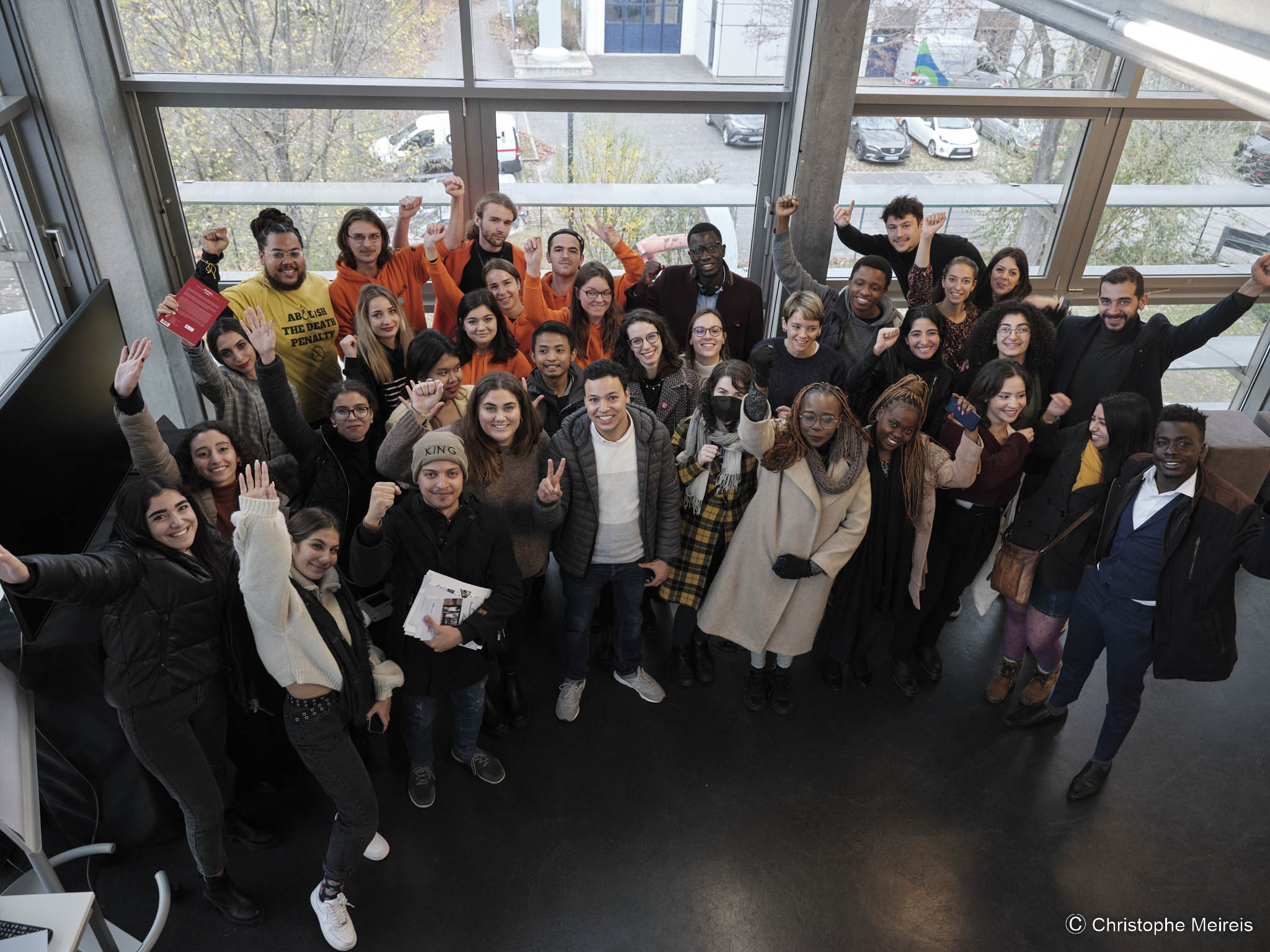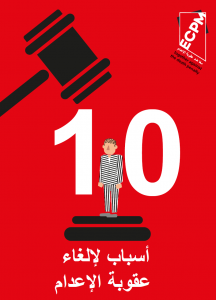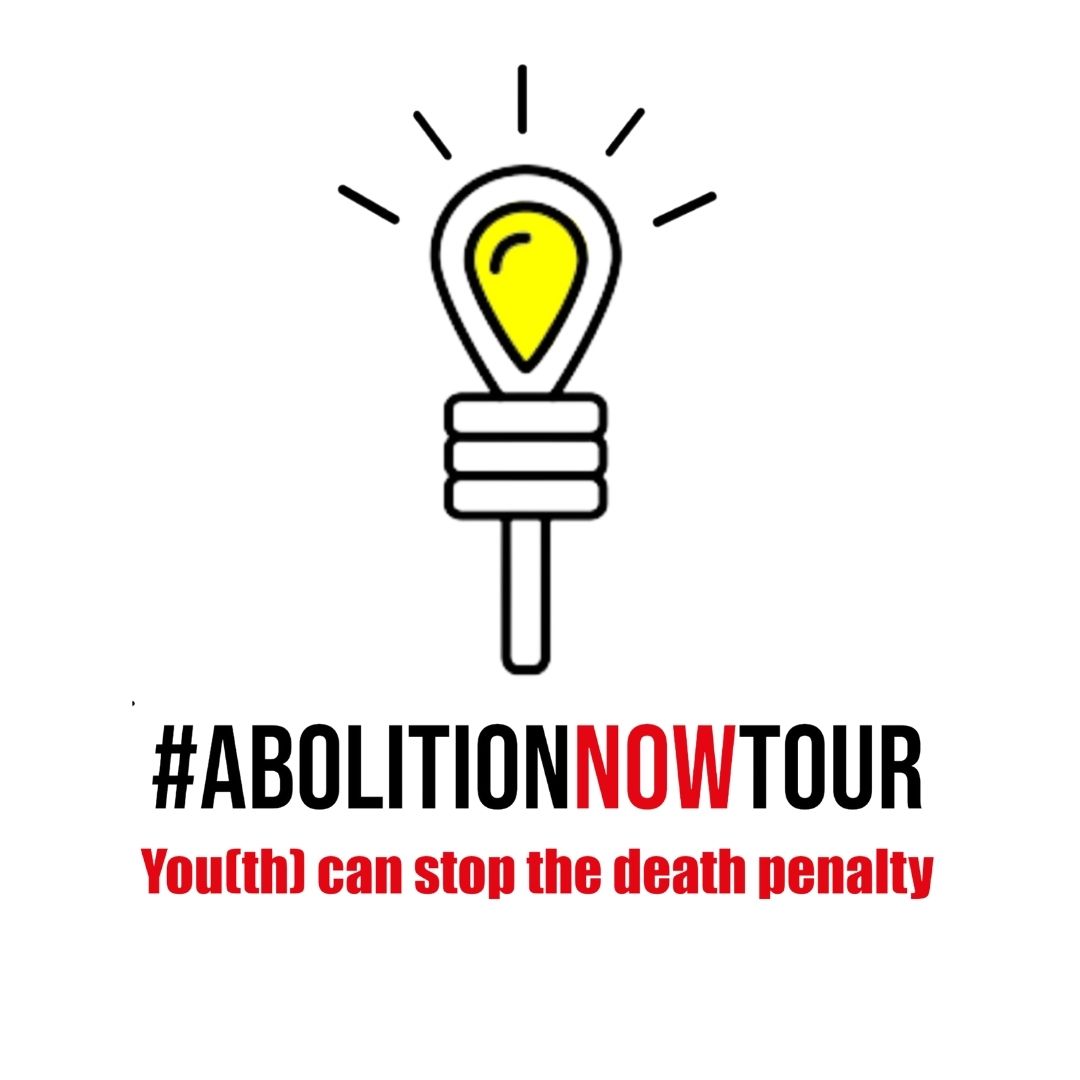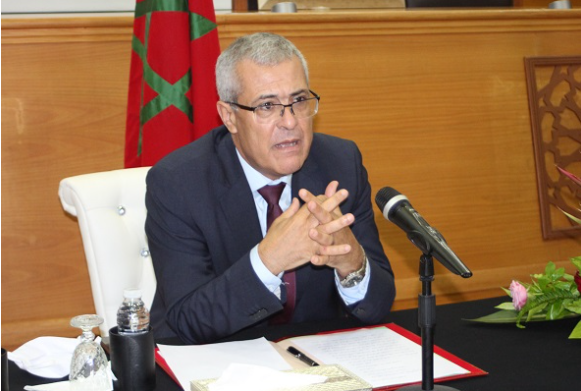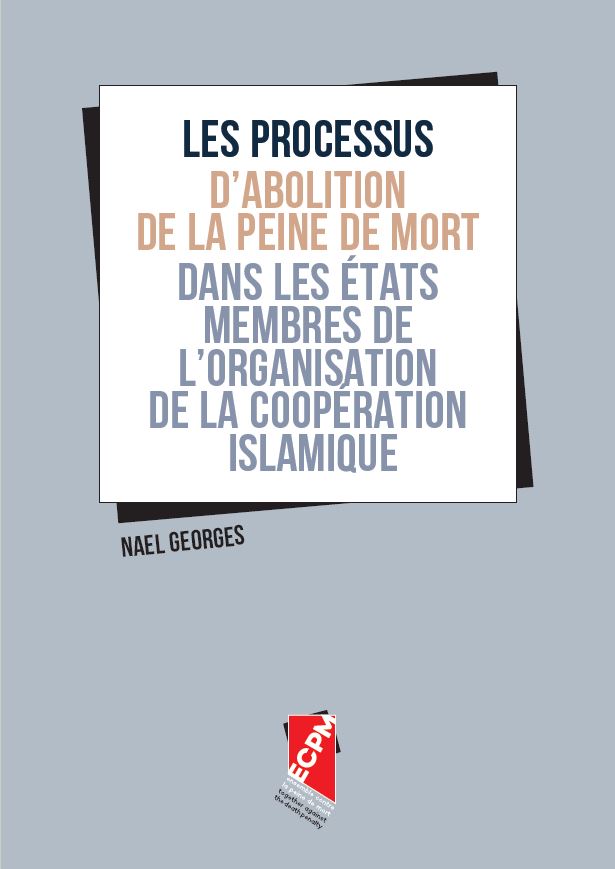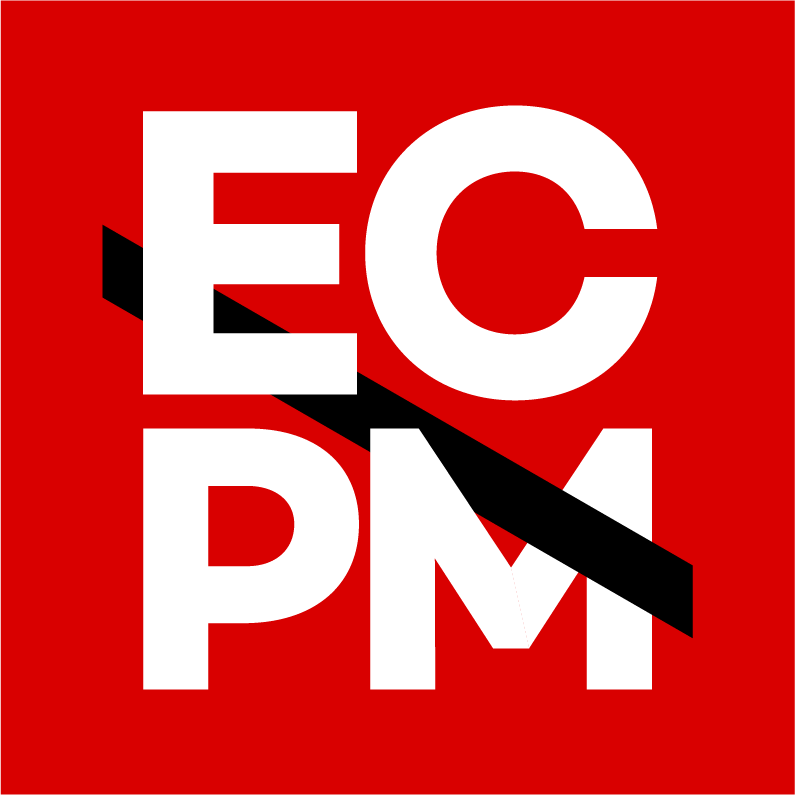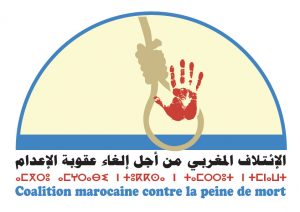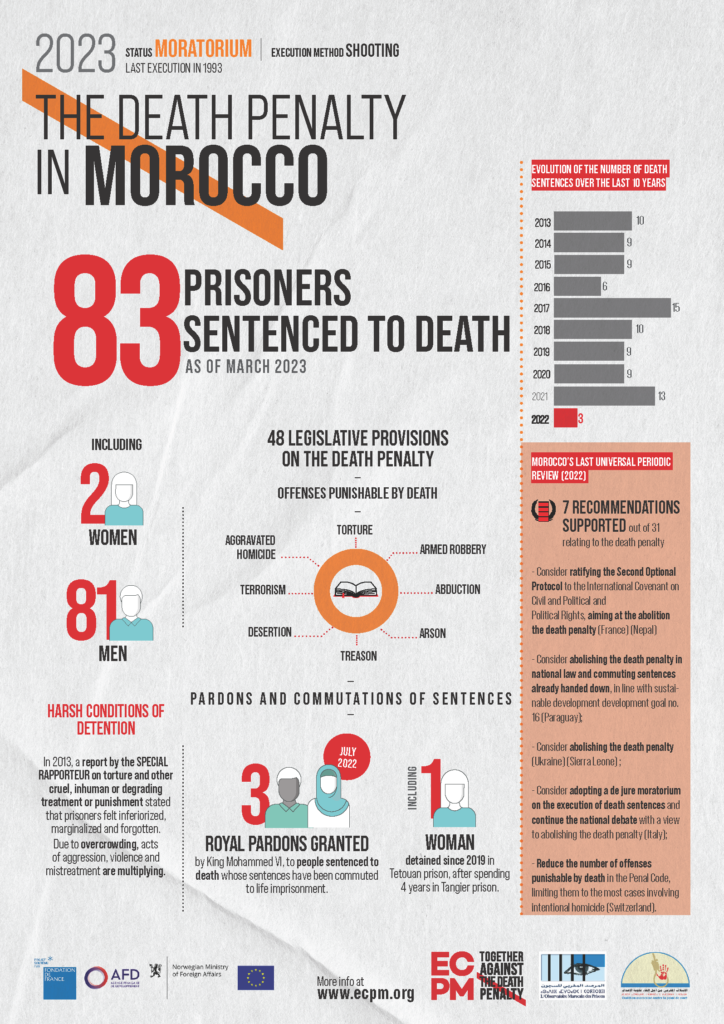
Since 2007, ECPM has been working in Morocco to bring together local abolitionist actors, in order to carry out advocacy campaigns at the national and international level and to implement an educational programme aimed at young people.
Joining forces
The activist scene in Morocco is highly dynamic: ECPM joins forces with the Coalition marocaine contre la peine de mort(which unites eleven associations), the National Human Rights Council (CNDH), as well as networks the association helped to initiate, such as the Réseau des avocats contre la peine de mort (RACPM), the Réseau des parlementaires contre la peine de mort (RPCPM) and the Réseau des journalistes contre la peine de mort (RJCPM).
At the regional level, ECPM supports the development of an abolitionist network in the Maghreb.
Since 2017, ECPM has been coordinating the project “Strengthening progress towards abolition of the death penalty“, with the support of the Agence française de développement, Norway, Switzerland, the European Union and the Fondation de France.
Promoting changes in the law
ECPM and its partners hold political meetings and organise working sessions with diplomatic missions involved in the international abolitionist movement. Activities include making advocacy tools available to local actors, organising awareness-raising workshops in the Moroccan Parliament and strengthening representation of Moroccan actors at UN bodies.
Events organised at the United Nations contribute to putting the international instruments that can propel abolition in the country on the agenda: the United Nations General Assembly Resolution on a universal moratorium on the use of the death penalty and the Second Optional Protocol to the International Covenant on Civil and Political Rights (OP2). ECPM also monitors Morocco’s compliance with commitments made at the Universal Periodic Review (UPR), a mechanism of the UN Human Rights Council (HRC), by preparing and submitting alternative reports.
Fact-finding missions to prisons make it possible to analyse the conditions of detention of death row prisoners in relation to international standards, and to encourage the authorities to increase transparency. In 2013, ECPM and the Organisation marocaine des droits humains (OMDH) published the report, “Voyage au cimetière des vivants” (Journey to the cemetery of the living).
Teaching and raising awareness
A dense and varied educational programme, aimed at secondary school and sixth-form students throughout the country, has been implemented over several years. Presentations in schools foster meetings with abolitionist figures and key witnesses in the struggle, such as Ahmed Haou, a former death row prisoner in Morocco.
A wide range of tools (educational guide for teachers, board game, trilingual comic strip on the conditions of detention of death row prisoners in Morocco and Tunisia), adapted to the Moroccan political and cultural context, are made available to the general public. These tools encourage young Moroccans to take part in the international competitions organised by ECPM (drawing competition, moot court competition, etc.).
Regional forums assembling many young people from the Middle East and North Africa (MENA) region are also organised, for example in Tunis in 2018, and in Fez in 2015.
Cultural initiatives are frequently organised to raise awareness of the general public: exhibitions of works opposing the death penalty, film festivals, theatrical performances. Particular attention is paid to articulating the abolitionist argument in the Moroccan context during public debates, to remind people that the death penalty is not a deterrent and has no genuine religious justification. For example, ECPM organised the first film festival on the death penalty in Rabat in 2015.
The situation of death row prisoners
In Morocco’s contemporary history, the death penalty has been used as a tool of political repression. Today, death sentences are mainly handed down for blood crimes or crimes related to terrorism. At the end of 2020, according to official data, among the prisoners sentenced to death, 57 people had been sentenced to death for common crimes, and 19 others for terrorist acts.
The last execution in Morocco took place on 5 September 1993. Between 1954 and 1993, 54 executions were recorded, mainly of political opponents. Since 1993, Morocco has had a moratorium on executions, but courts continue to hand down death sentences on a regular basis. According to official statistics from the Ministry of Justice, between 2009 and 2019, 97 death sentences were handed down by Moroccan courts. The head of the public prosecutor’s office explains this evolution by the decrease in the number of death sentences as well as by the royal pardon measures that allow for the commutation of the death penalty to various prison sentences.
The King’s Attorney General at the Court of Cassation, President of the Public Prosecutor’s Office, said that the number of people sentenced to death continues to fall year by year, from 197 in 1993 to 79 in 2021. Noting that the death penalty is still in force at the level of the law, he said that judges are only obliged to apply the law as stipulated in the Basic Law. Judicial decisions are made solely on the basis of the impartial application of the law (Article 110 of the Constitution), while magistrates of the Public Prosecutor’s Office are obliged to apply the law and must comply with written instructions issued by the hierarchical authority, according to the text of the Constitution.
Few women have been sentenced to death since 1993. There are currently two women in prison. It is also quite rare that foreigners are sentenced to death. Currently four foreigners, including two Dutch nationals held in Marrakech prison and two French nationals sentenced to death, are detained. The consular assistance to which they are entitled, under the Vienna Convention (1963) on Consular Relations, is available to them insofar as the consular authorities, where they have representation in the country, are notified and likely to travel easily.
